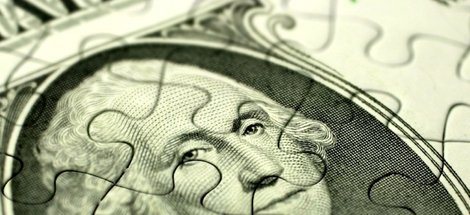Reports suggest corporate America partially responsible for inflation
by May 12, 2022 4:51 pm 1,747 views

Rising prices helped buoy sales and net income for like Tyson Foods, Procter & Gamble and other corporate giants. The U.S. Department of Labor recently reported the Aprl Consumer Price Index rose 8.3% from a year ago, and was up 0.3% from March.
Many publicly-held companies reporting earrings in the past year have noted higher COVID-related costs associated with worker absences, rising transportation costs from a supply chain log jam and rapidly rising commodity prices.
The think tank group Groundwork Collaborative compiled two reports earlier this year showing how corporations profit from the pandemic and raise consumer prices to help to fuel inflation. Groundwork Collaborative found much of corporate America is raising prices on goods and services while also growing net income to sometimes near-record levels.
Tyson Foods CEO Donnie King recently told analysts the company does not expect customers to pay for the company’s incompetencies but it would pass along price increases related to significantly higher operating costs. In that same conference call, Tyson reported net income was up 74% from a year ago for the quarter ending March 31. For the first half of Tyson’s fiscal 2022, the company has grown net income to $1.95 billion, more than double that of the same period last year. Tyson Foods Chief Financial Officer Stewart Glendinning said, “Our pricing actions led to approximately $2.1 billion in sales and price/mix benefits during the recent quarter which offset the cost of goods of $1.6 billion.”
Lindsay Owens, the founder of Groundwork Collaborative, said Tyson pocketed record profits on the backs of consumers after it covered its higher expenses. The meat giant had stellar profits in fiscal 2021 and 2020 as well. Owens said Tyson is not alone. Hormel executives said earlier this year the company had done “a great job with pricing increases.” As prices rose, Hormel improved its operating income by 19% in the first quarter of this year compared to 2021.
She said too often companies will seek to reward shareholders at the expense of consumers. Owens reports Pioneer Natural Resources, a Texas-based shale company, chose to limit production as prices rose from Russia’s invasion of Ukraine. She said the big winners are the shareholders as the company chose to return cash to them, in lieu of increasing production.
Groundwork Collaborative said the larger and more consolidated a sector gets the more pricing pressure the key players will have over consumers. One out of every five pounds of meat consumed in the U.S. comes from Tyson Foods, and Kimberly-Clark and Procter & Gamble control 70% of the U.S. diaper market, Owens said.
Kimberly Clark executives said earlier this year they too, were increasing prices in order to allocate more cash to shareholders. The company is coming off a fiscal 2021 net income of $1.814 billion, falling from $2.353 billion in the previous year and $2.157 billion in fiscal 2019. P&G has raised prices across the board for many of its brands and has seen net income rise 9.8% to $21.33 billion last year.
The Guardian reported corporate profits rose 35% during the last year, which was their highest gains since 1950. This also coincides with the 8.3% inflation rate reported this month by the Labor Department.
“The analysis of Securities and Exchange Commission filings for 100 US corporations found net profits up by a median of 49%, and in one case by as much as 111,000%. Those increases came as companies saddled customers with higher prices and all but ten executed massive stock buyback programs or bumped dividends to enrich investors,” the Guardian noted in this report.
Owens said corporations are taking the opportunity to raise prices under the cover of inflation.
“Companies know consumers are expecting higher prices right now and they are seeing just how far they push that,” she said.
Owens noted that the producer price index is up 10% from a year ago and corporate net income is up on average 12.4%, suggesting corporate America is finding a way to benefit from higher prices.
